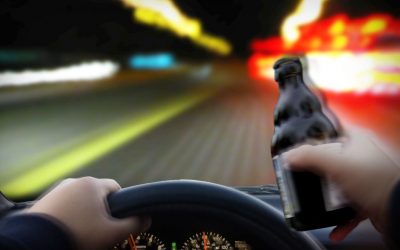
When a cop wants to test for a weed DUI, there is no formal field sobriety test like with alcohol testing. If they want to test you for weed, they must perform a chemical test. Currently, there is no breath version of a DUI weed test.
If you are detained to take a DUI weed test, you could be asked to give a urine sample, blood sample, saliva sample, or any combination of these. If you are accused of driving while high, a Los Angeles DUI lawyer will protect your rights and represent your interests.
How Cops Test for a Weed DUI
Most everyone knows what to expect when dealing with an alcohol-related DUI. You will be asked to perform field sobriety tests like the one-leg stand, walk-and-turn, and breathalyzer tests.
To be formally charged with a marijuana-related DUI, the police officer must prove the presence of marijuana in your bloodstream. Field sobriety tests will not properly demonstrate the presence of marijuana in your bloodstream.
Therefore, a chemical test administered by the authorities is necessary to test for weed DUI. The main types of chemical tests used to detect weed in California are:
- Urine tests
- Blood tests
- Saliva tests
The samples are sent to a laboratory for analysis. The laboratory then screens the samples for tetrahydrocannabinol (THC) metabolites, which are byproducts produced when the body breaks down THC, the psychoactive compound found in marijuana.
How Long Does Marijuana Stay in Your Body?
There is a major flaw with all of these tests. THC metabolites can stay in your body longer than the intoxication lasts. Weed will show up in your urine the longest. It will usually stay for about a month.
The metabolites from weed will typically stay in your blood for about a week, while it will only stay in your saliva for about a day. This means the saliva test is the most accurate test for a cop to test for a weed DUI.
Yet many flaws can happen with any of these tests. If you have been detained to take a weed DUI test, your first call should be to a DUI lawyer in your area to get legal advice and begin your defense.
Officer’s Discretion
Officers cannot randomly take you in for any DUI test. They need to have probable cause. An officer of the law is going to make some educated assumptions about you and the way you are behaving if they suspect you might have been driving impaired.
An officer may believe that you might have been driving high on marijuana if:
- Your eyes are red and watery with dilated pupils.
- Your breathing is really fast, along with a rapid heart rate.
- Your car smells like cannabis.
If the police suspect you may be high on weed, then they will detain you and take you to the station for a DUI weed test. Formal chemical testing needs to be performed before they can officially arrest you.
How a Los Angeles DUI Lawyer Can Help You After Cops Test You For a Weed DUI
A Los Angeles DUI lawyer is a criminal defense lawyer experienced in cases dealing with alcohol and drug-related DUIs. They intend to have the DUI charges dropped altogether or, at the very least, minimize the penalties.
They can argue that law enforcement officers did not conduct the tests properly. Your lawyer can defend you by saying that the prosecution’s evidence against you is either incredibly weak or illegally obtained.
The prosecution can easily misconstrue this evidence because weed stays in your system for so long. You could have last smoked weed three weeks before being pulled over and yet still fail the urine drug test.
Medical Marijuana and DUI Laws
Having a valid medical marijuana card does not protect you from a DUI charge in Los Angeles. While California law permits the use of medical marijuana, it strictly prohibits driving under the influence of any substance that impairs your ability to operate a vehicle safely.
Your legal right to use marijuana for medical purposes must be balanced with public safety concerns. However, since THC metabolites last so long in the body, this makes medical marijuana users especially vulnerable to false charges through a weed DUI test.
Defense strategies for medical marijuana DUI cases often include documenting your prescription history, establishing your typical usage patterns, and demonstrating your ability to drive safely while following your prescribed treatment plan.
Contact a Los Angeles DUI Attorney Today
Facing a marijuana-related DUI charge should not have to feel like the end of the world, even if the cops test for a weed DUI. These test results can be challenged with the help of an experienced DUI lawyer.
Working with a Los Angeles DUI lawyer on these types of cases can be the difference between walking out of the courthouse with your head held high and smiling or being handcuffed and uncertain about your future. Contact us today and receive a free and confidential case evaluation.







